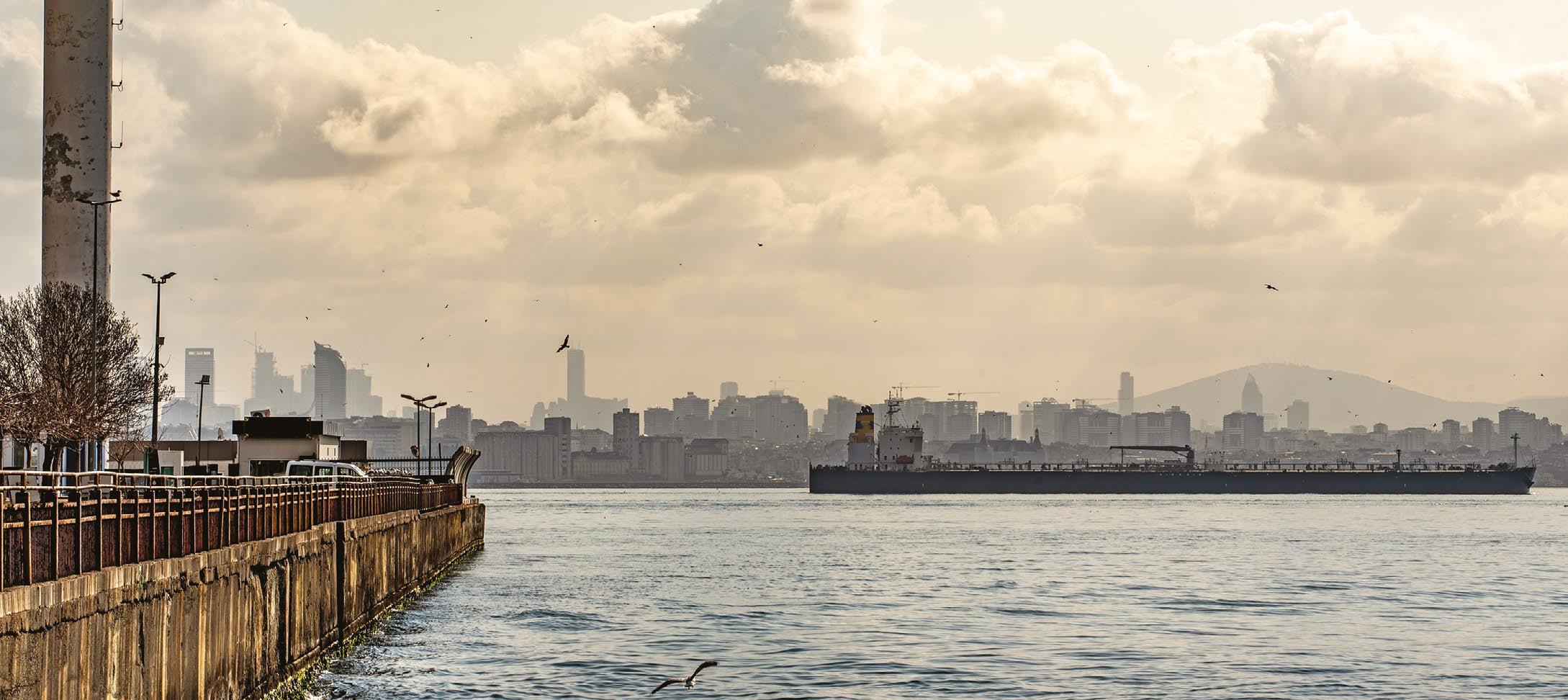
3 minute read
Global context
NEWS BITES
Global context
Advertisement
GRAINS BEING EXPORTED OVER THE BLACK SEA
One of the most significant developments in the quarter was the deal brokered by Turkey and the UN wherein warring parties Russia and Ukraine allowed for the reopening of Black Sea ports for agricultural exports. Over the first two months following its signature in late July, it helped nearly 5 million tonnes of grain to be shipped out of Ukraine and onto the hungry global markets, lowering food prices.
RUSSIA PRESSURING EUROPE ON GAS, AFFECTING MULTIPLE INDUSTRIES
Still, the Russia-Ukraine War continues to affect the agricultural sector, particularly because of its impacts on the supply of natural gas to Europe. This has already had knock-on effects on the supply of various inputs throughout the value chain. For example, it has shut fertiliser production across the continent, which has affected the supply of industrial CO2 (used in stunning animals and packaging meat, and made as a byproduct of fertiliser production) and feed phosphates. Going forward, there are fears about what a worsening of Europe’s energy crisis could mean for feed additives manufacturers; see page 18-19 for further discussion of this situation.
VIETNAM RESUMES ASF VACCINE PILOT
Initial deployment of the world’s first vaccine against African Swine Fever was halted in August over concerns about concerns about the deaths of vaccinated pigs. However, it is now being reported that the mortality was due to those operations failing to respect the rules surrounding the use of the vaccine, administering it to pigs which should not have received it because of their age, or using incorrect doses. It is understood the country is now resuming the use of the new vaccine, which was developed by NAVETCO with the ASF-G-Δl177L technology licensed from USDA.
EMISSIONS CEILINGS CAP IRISH AGRICULTURE’S CO2 GENERATION
The end of July saw the Irish government announce greenhouse gas reduction targets for various sectors, and the agricultural sector finds itself obliged to reduce its CO2 footprint by 25% of 2018 levels by 2030. “Crucially, the changes for agriculture will be voluntary,” states the announcement, which also promises “generous financial incentives in return with an additional financial package in Budget 2023.”
DUTCH FARMERS PROTEST LIMITATIONS ON LIVESTOCK PRODUCTION
Elsewhere in northwest Europe, Dutch farmers staged several protests over the summer, pushing back against nitrogen emissions targets which will require a reduction in the number of animals the country raises. They argue that Dutch farmers are among the most efficient and cleanest in the world, and that a reduction here would be met with an expansion in other countries where livestock production is more polluting. Meanwhile, others argue that farming is among the sectors which emit the most nitrogen into the environment, and that the country has already surpassed what it is legally allowed to emit under EU law.
LOW WATER LEVELS AFFECT RIVER SHIPPING
In the US and Europe, major arteries used by the agricultural industry to ship feed ingredients and additives have been pressured by drought. Those dependent on the Mississippi have had to deal with draft restrictions requiring their ships to be lighter, curbs on the number of vessels, and narrowed or closed passages, while vessels on the Rhine have sailed largely empty at some parts of this summer because of low water levels, and shippers have also seen many vessels move to the Danube to help shift grain out of Ukraine before that country’s Black Sea ports were operational again.
SOME PORK PRODUCERS SETTLE IN US PRICE-FIXING CASES
JBS SA may pay USD 20 million and Smithfield Foods USD 75 million to resolve lawsuits brought by consumers, according to preliminary settlements accepted in the month of September. Litigation around the behaviour of other pork industry actors such as Hormel and Tyson Foods was ongoing in the second half of September, according to news sources such as the Associated Press and Reuters.








